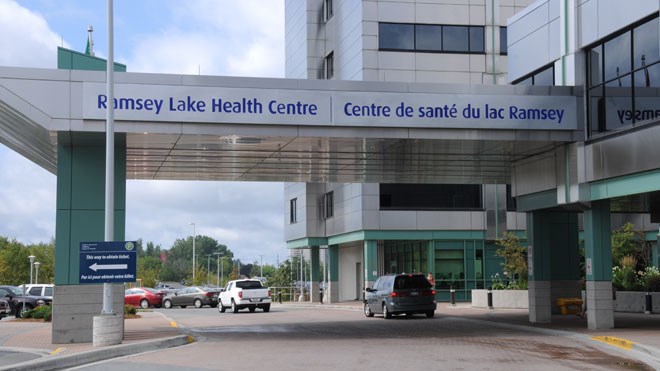Stories about crises in our health care system have become so common, I fear we might soon end up suffering crisis-fatigue. That would be terrible.
We are facing actual crises, but I worry that the increasingly common use of that word will mean it will soon be falling on deaf ears.
Opioid crisis. Personal support work crisis. Hospital overcrowding crisis. These are very real and present threats, and they are having very real and present consequences.
They are also issues we’ve known about for years, but did little or nothing about. A few weeks ago, I wrote about how the previous Liberal government won elections by spending huge amounts of money on social programs and big promises. I accused them of kicking the debt and deficit can down the road.
When it comes to the opioid crisis, PSWs and hospital overcrowding, here too we find evidence of cans being kicked down the road. Not only by Kathleen Wynne or Dalton McGuinty, but by successive governments going back decades in the case of the state of hospitals and homecare.
Last week, Sudbury MPP Jamie West introduced a private member’s bill to attempt to declare the opioid crisis a public health emergency. It appears to be a good bill, though some of the provisions West has included in there will make it a challenge to pass — namely asking a Tory government that is determined to cut spending to shell out for harm reduction measures, treatment programs and contentious overdose prevention sites, which the Conservatives don’t seem keen about.
West thinks it’s time to move beyond thinking about the rampant opioid addiction (a North American problem, not an Ontario problem alone) rate as a crisis, and start treating it as an emergency. For my part, I think West is absolutely right.
There was a time doctors were very reluctant to prescribe highly addictive opioids to anyone other than the terminally ill or cancer patients, and patients were reluctant to take them.
Marketing changed all that, marketing some are now calling highly deceptive and others are calling criminal. Ontario and British Columbia are proposing a class action lawsuit against dozens of opioid manufacturers, alleging pharmaceutical companies used cherry-picked data to help convince doctors and patients time-release opioids were less addictive. Prescription rates soared as a drug once reserved almost exclusively for the terminally ill was prescribed with increasing regularity for all manner of relatively minor aches and pains.
Financially and philosophically, West’s bill may not find the Tories to be very receptive, but I hope I’m wrong. The problem went unacknowledged for more than a decade, even as warning signs went either ignored or unrecognized.
And if it isn’t the opioid crisis, it’s people being treated in hospital hallways. This isn’t a Sudbury problem. This is an Ontario problem.
Again, for decades we ignored experts who told us longer lifespans and the Baby Boomer generation was going to swamp the health care system with hundreds of thousands of aging people who would require increasingly expensive and complex medical care.
Governments didn’t listen. Nobody planned for it. We just watched the wave approach — a wave that still hasn’t broken, mind you. Hospitals are overflowing with patients who shouldn’t be in hospital but are because there is not enough capacity has been built into the community to care for them.
Health Sciences North spent a couple of weeks this month at 115-per-cent over-capacity and is breathing a sigh of relief that it only has 80 or so alternative level of care patients. This is not unusual. That it isn’t is a sure sign of a crisis.
HSN began labelling the most frail of its ALC patients as “in crisis” last week to speed up their acceptance into long-term care homes, but here too we find ourselves in another crisis situation.
A survey by Workforce Planning for Sudbury and Manitoulin that was released May 24 was disturbing, but not surprising. It really confirmed what we’ve been hearing for a number of years.
Personal support workers (PSWs) are fleeing the profession in droves, driven away by low pay and poor working conditions. So even if you or your loved one manages to get one of the 1,500 or so long-term care beds in this city, there aren’t enough PSWs to go around.
They work long hours, often for less than $20 an hour, with more than half not receiving any health benefits and they are treated, according to the survey, with little or no respect by the doctors and nurses who are supposed to be their coworkers.
We absolutely need PSWs. We need them so older people can stay in their homes longer; we need them so hospitals aren’t overflowing with patients that can’t find a bed in our at-capacity long-term-care homes; we need more of them so the people in those LTC homes get the best care possible.
We’ve known about problems in the homecare system for years and we’ve known about the issues PSWs face for years, too. Again, as with the two previous crises I mentioned, the problem was largely ignored and any efforts that were made were only marginally effective at best.
We had warnings and rumblings about these issues for years, but couldn’t get it together to tackle the problem in any effective way. And now we have to pay the piper. And it’s going to be expensive.
Mark Gentili is the editor of Sudbury.com and Northern Life.
